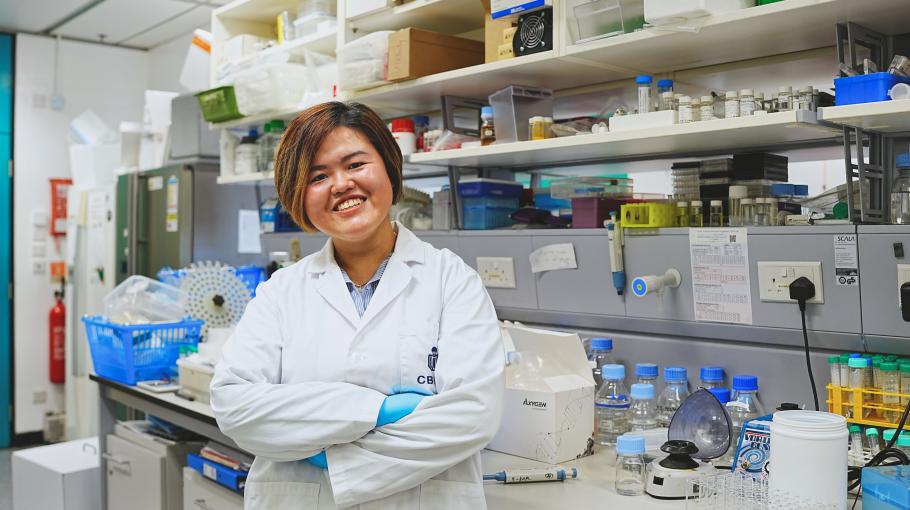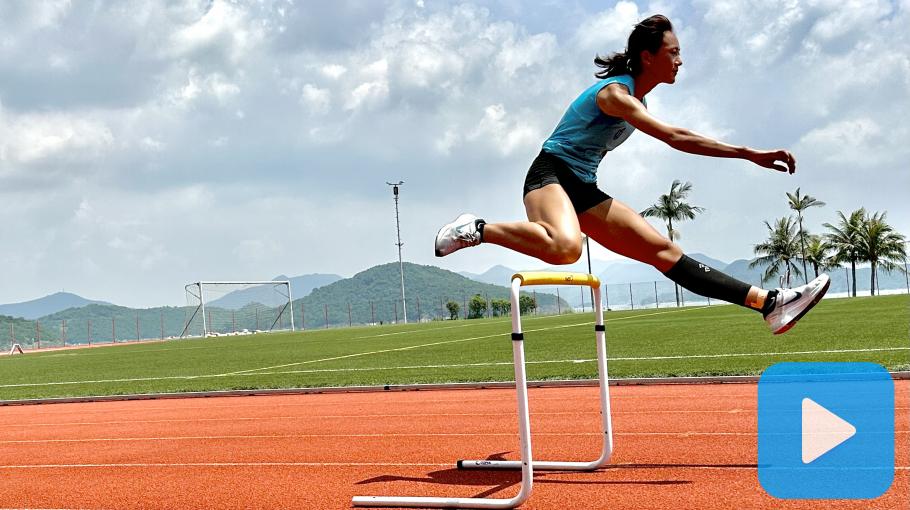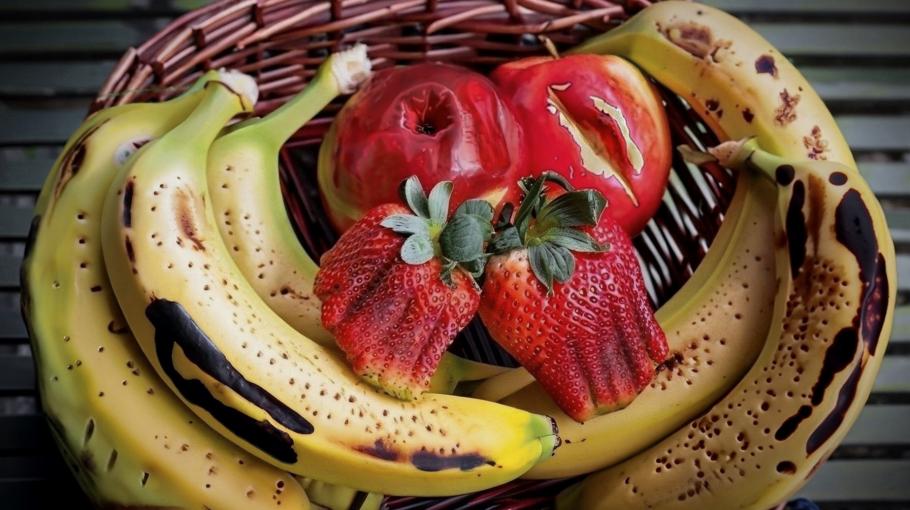Kachin WONG aspired to study Medicine while at secondary school, but his less-than-expected public examination results shattered his dream. The great disappointment, however, turned out to be a blessing in disguise.
He was admitted to HKUST to study biochemistry and cell biology and went on to complete an MPhil program in Technology Leadership and Entrepreneurship (TLE) this year. During his postgraduate studies, he came across a paper by Prof. SUN Fei of Chemical and Biological Engineering (CBE) about smart hydrogels. Hydrogels, also known as soft matter in the medical world, are leading materials for biomedical applications such as drug delivery and stem cell therapy.
Traditional hydrogels are likely to cause allergies as they are made up of either synthetic polymers or biological extracts such as animal collagen. The composition of the new hydrogel developed by the team helps solve the problem as it resembles human tissues and thus can be used to deliver live cells into human bodies, minimizing allergies and body rejection.
Kachin thought the technology had great potential for commercialization, so he went straight to Prof. Sun and asked if he would be allowed to do this together.
The answer was yes, not only did it lead to the beginning of an entrepreneurial journey but also fulfil his dream to work in the medical sector. Prof. Sun lined him up with his research students WANG Ri, PhD in Bioengineering and YANG Zhongguang, PhD in Chemical and Biomolecular Engineering. Both of them are current postdoctoral fellows in CBE. Early this year, they co-founded a biotechnology start-up named SPES Tech to bring about next-generation therapeutics using their hydrogel product “LitGel”. Prof. Sun is the chairman and the principal scientific advisor of the company.
The team won Grand Innovation Award in the 5th Hong Kong University Student Innovation and Entrepreneurship Competition in May, and was one of six teams selected to join Merck Accelerator China Program 2019 in April. They have also recently got a conditional offer of the four-year HKSTP Incu-Bio Programme. Once the full offer is obtained, the company will be granted up to HK$6 million for product development.
All these rosy achievements don’t come easy. Fledging entrepreneurs like them may have brilliant innovations, but they often lack the much-needed hardware and software support as they progress from early to growth stage.
“In the area of scientific research, HKUST has given us tremendous assistance which is an important part of shaping the development direction of our company,” says Kachin.
By providing laboratories and state-of-the-art equipment for the team to carry out experiments and tests, HKUST seeks to aid early-stage entrepreneurs like them. There were also collaborative opportunities initiated by the University or faculty to maximize the team’s potential applications of the product.
“It was very important for us to learn that our invention would have meaningful applications in other disciplines at an early stage,” acknowledges Ri. “The collaborative initiatives HKUST had across schools were also crucial, as they allowed us to learn how others could make use of the hydrogels in their fields, and what kind of requirements and improvements we would need to meet and make in order for the invention to be successful.”
The University’s Technology Transfer Center (TTC) provides initial support and funding to get promising research teams embark on entrepreneurship. Dr. Alex KWONG, Head of Biotechnology and Entrepreneurship Support at TTC, witnessed the growth of SPES Tech from lab to market. In 2017, TTC helped them apply for patent in the US. Afterwards, a Proof-of-Concept fund and U*STAR fund was given to them respectively for developing prototype and business model and soliciting market feedback.
Since 2014, TTC has provided funding under Technology Start-up Support Scheme for University (TSSSU) to 53 home-grown start-ups, of which SPEC Tech is one of the beneficiaries. The University has also recently set up HKUST Entrepreneurship Fund, with initial funding of HK$50 million, for the next five years.
In addition to funding, TTC actively participates in industry events and exhibitions to promote HKUST start-ups. Dr. Kwong says, “Through joining these events, start-ups can obtain feedback from the market and investors so as to grasp the market trend and improve their product according to the market demand.”
The next step for SPES Tech will be to draw up different deployment scenarios of the hydrogels, such as drug screening and personalized medication. The road ahead might be thorny, but the team is ready to meet whatever challenges with confidence along the way. “We know how difficult the road ahead will be. But we are really enthusiastic about the prospects of our invention, so why not give it a shot while we are still young?” asks Zhongguang.





